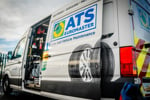SIR – Your columnist David Faithful’s article concerning corporate manslaughter issues, clearly demonstrates the risks that fleet managers now face in their daily operational lives (Fleet NewsNet, March 10).
It is up to fleet managers to assess their exposure to such risks while operating their respective fleets.
An example is found daily on the used vehicle markets. As a regular buyer of used vehicles, particularly late plate models, I am amazed at the lack of service history on most.
It is not just the odd few either – it is almost a case of the odd few having a service history, such is the extent of the problem. This affects the residual values considerably and invalidates the three-year manufacturer warranty.
But could there be a more sinister consequence of this apparent lack of servicing?
If a fleet vehicle were involved in a fatal incident (it would not be referred to as an ‘accident’ if blame can be apportioned) and it could be proved that the cause was down to poor or no maintenance, then surely the fleet manager, along with the driver and possibly operations director, could face prosecution?
Such risks already exist within the commercial vehicle operators’ licence sector, with established case law seeing company directors jailed for negligence. This could so easily be repeated in the company car fleet sector, particularly with the rise in fatal incidents on our roads.
It is time that fleets, big and small, paid more attention to their maintenance procedures, to ensure vehicles report for regular servicing, with records kept accordingly.
Dave Woods
Director, XBG Fleet Remarketing
Health and safety issues need a way with words
SIR – For a journal that constantly preaches the health and safety message to fleet managers (and rightfully so), I venture to suggest that it is time your testers considered their words more carefully.
In your issue of March 3 we had Steve Moody describing the Golf GTI. He wrote of ‘muscular brute blasts into town’ and it being a ‘brutish vehicle for a more aggressive type of buyer’.
In another issue you were ‘blasting down the road’ straight after clearing ice and snow off the windscreen of your long-term Jaguar S-type diesel 2.7d.
Extending (or transforming) a driver’s personality into the driving of the car itself is a sure way of entering the accident statistics, as any traffic cop will be happy to tell you, and journalistic hyperbole in a responsible journal should recognise this fact, even if you are all lads at heart.
Mike Taplin
Project manager, Stroud Valleys Car Club, Stroud
Central ignition a safety feature
SIR – Following the author’s confusion about Saab 9-3 Vector 1.9 TiD’s centre console ignition position (Fleet NewsNet, March 24), I would like to clarify Saab’s reasons for placing it here.
The ignition position is a safety feature which eradicates the possibility of the key injuring the driver’s knee in an impact. Euro NCAP crash safety tests highlighted this beneficial fact.
The driver can start the car with the same hand used to put it in gear or release the handbrake and it is easy to find in the dark, as it is lit by the interior light.
Gary Axon
Saab Product, Communications Manager
Diesel Guard converts thinking
SIR – I write regarding your recent feature on misfuelling (Fleet NewsNet, March 10). We had avoided putting diesel cars on our fleet for some considerable time for this very reason.
We had heard stories, such as a client of ours being charged more than £2,500 by a BMW dealer to rectify a 5-series diesel which had been filled with petrol, even though it had not been started. This added to our concerns.
Last June, we bit the bullet and our first batch of diesel cars was delivered. All were fitted immediately with the Diesel Guard, audible warning devices you recently featured, and to date we have had no problems at all. The devices are low cost and very effective and we fit them on all diesels now as a matter of course.
As soon as you open the filler flap you are reminded that ‘this vehicle runs on diesel fuel only, insert diesel fuel only’. The volume is such that you cannot miss hearing it, even on a noisy forecourt!
None of our drivers were used to diesels and the transition has proved totally painless. We even have diesel pool cars now.
Philip Joisce
Director, Goode International, Reading















Login to comment
Comments
No comments have been made yet.